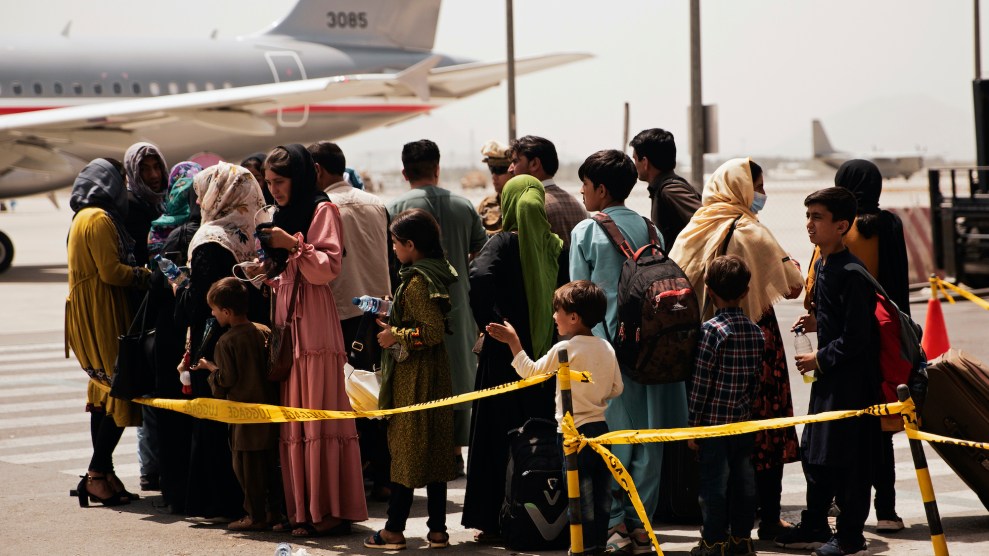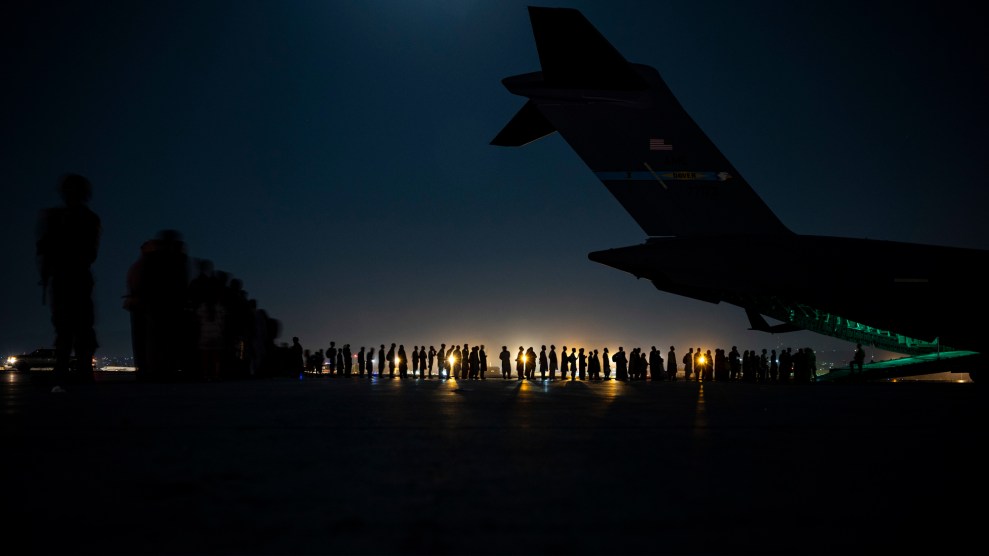
People wait to be evacuated at Hamid Karzai airport, August 18, 2021.Staff Sgt. Victor Mancilla/US Marine Corps/AP
With just two days to go before the August 31 deadline for US withdrawal from Afghanistan, the evacuation effort from Hamid Karzai International Airport is slowing. But on Sunday morning, 97 countries and the United States said in a joint statement that they had “received assurances from the Taliban” that both Afghans and non-Afghans with travel authorization will be permitted to leave the country after the US military departs.
“We will continue issuing travel documentation to designated Afghans, and we have the clear expectation of and commitment from the Taliban that they can travel to our respective countries,” the statement said.
Yet regardless of international assurances, for hundreds of thousands of at-risk Afghans, there will be many barriers to leaving the country. First, there’s the prospect of traveling through Taliban checkpoints to the Kabul airport—which also will be controlled by the Taliban after the US leaves—or making a dangerous journey by land. Then there’s the matter of papers.
Sher Mohammed Abas Stanekzai, the chief Taliban negotiator, said on Friday that Afghans who wish to leave the country must first obtain passports from the Afghan interior ministry and travel documents from foreign governments. “At best, it is a process could take months, if not years; at worst, it will alert the Taliban as to who does not want to live under their rule,” Lara Jakes writes in the New York Times.
According to the Biden administration, 117,000 people had been evacuated from Afghanistan as of Saturday, including at least 5,100 Americans. But a precise tally of who still needs to be evacuated is impossible: The Times reports that officials believe “thousands of Americans” remain in Afghanistan, as do tens of thousands of Afghans who worked for the US government over the last two decades. And that’s not even beginning to count the Afghans—including journalists, judges, and women’s rights advocates—who risk of being targeted by the Taliban for other reasons.
While Taliban leaders make public assurances of amnesty for Afghan soldiers and previous government officials, “there are growing reports of detentions, disappearances, and even executions of officials at the hands of the Taliban, in what some current and former government officials describe as a covert and sometimes deadly pursuit of the Taliban’s enemies,” according the Times.
US officials are making “ongoing preparations to help people continue to leave Afghanistan after our military departs,” Biden said in a statement on Saturday. But as the deadline approaches, the numbers of people getting out is slowing dramatically. About 2,900 people were evacuated by the United States on Saturday, compared to 6,800 the day before, and military commanders are moving troops and equipment out of the airport.
















